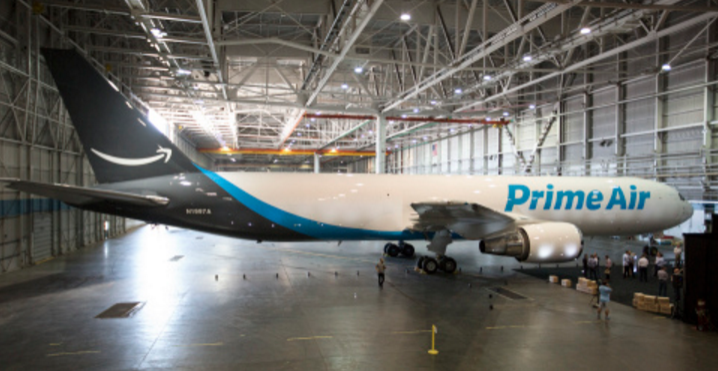How Walmart, Target, And eBay Are Taking On Prime Day

In just a few years, Prime Day has gone from a way for Amazon (NASDAQ:AMZN) to promote its membership program to a nationwide shopping holiday. It's estimated that 250 different retailers are offering some sort of promotion leading up to or on July 15 and 16 -- the dates Amazon has dubbed Prime Day 2019.
Chief among those retail participants vying for shoppers are Walmart (NYSE:WMT) , Target (NYSE:TGT) , and eBay (NASDAQ:EBAY) . All three have created special sales events around Prime Day in an effort to highlight their strengths and win customers. Here's how all three retailers plan to take on the shopping event of the summer.
Walmart wants to capitalize on early excitement and FOMO
Walmart will start its big sale the day before Prime Day and continue discounting items through July 17, the day after Prime Day. That could be beneficial for many consumers; 54% of shoppers said they'd like more time to take advantage of deals on Prime Day, according to a survey from RetailMeNot.
Offering deals the day before Amazon could capitalize on customers' fear of missing out. Walmart might not offer a better deal than Amazon, but some consumers will be eager to lock in their orders early. And keeping the deals going after Amazon closes up the deal treasure chest could win Walmart some sales from those that were too slow to get the best deal from Amazon.
Investors should expect Walmart to put a lot of focus on its NextDay shipping service as well as in-store pickup options. Walmart says NextDay shipments typically have lower fulfillment costs since all items must come from the same warehouse near the shopper's home. Lowering fulfillment costs is key to the long-term success of Walmart's online business, as its profit margin has been suffering lately trying to keep up with Amazon's delivery efforts.
Target focuses on exclusive products
Amazon might have over 100 million items available for Prime shipping benefits, but there are still some items consumers can't buy on its marketplace. Target has built up a portfolio of exclusive brands like Cat & Jack and Smith & Hawken. When it announced Deal Days on the same days as Prime Day, the press release noted deals on its exclusive brands, including those rarely on sale.
Offering deals on products not available on Amazon could draw customers to Target.com for other items as well. Seventeen percent of consumers said they shopped on another website during last year's Prime Day because the product or brand they wanted wasn't available on Amazon, according to a survey from A.T. Kearney.
Target will also highlight its ability to fulfill orders quickly, including its various same-day fulfillment options. Last year, Target used its one-day sale during Prime Day to stress-test its fulfillment capabilities. This year's sale ought to provide investors with a good indication of how well Target can support same-day fulfillment, which will be a key to its success in the fourth quarter.
eBay's crashing the party
eBay actually started the party early, offering deals beginning on July 1. But on July 15, it'll offer some of its best deals, and it promises to make the deals even better if Amazon's website crashes. (Amazon suffered several outages during Prime Day last year.)
While it might seem counterintuitive for eBay to offer better deals if Amazon's website goes down again, it's actually quite a clever ploy. eBay wants to be the first online marketplace consumers think of when they can't get what they want from Amazon. Not Walmart, or Target, or any of the other 247-odd online retailers expected to participate in Prime Day. If Amazon's website crashes, eBay could be poised to cash in.
eBay has struggled to keep up with Amazon and other online retailers lately. U.S. gross merchandise volume has declined in each of the last two quarters. Cashing in on Prime Day enthusiasm could be key to the company turning things around.
No one will topple Amazon
Despite the increased competition, each retailer is really only competing for second place. Amazon is still driving the car, forcing the hands of Walmart, Target, eBay, and others to offer better deals and faster shipping.
While Amazon will dominate sales on Prime Day, the growing participation from retailers may create greater opportunities for sales growth for everyone else. Walmart, Target, and eBay are each taking their own approaches, and we'll find out soon which one's efforts worked out best.
John Mackey, CEO of Whole Foods Market, an Amazon subsidiary, is a member of The Motley Fool's board of directors. Adam Levy owns shares of Amazon. The Motley Fool owns shares of and recommends Amazon. The Motley Fool recommends eBay. The Motley Fool has a disclosure policy.
This article originally appeared in the Motley Fool.





















